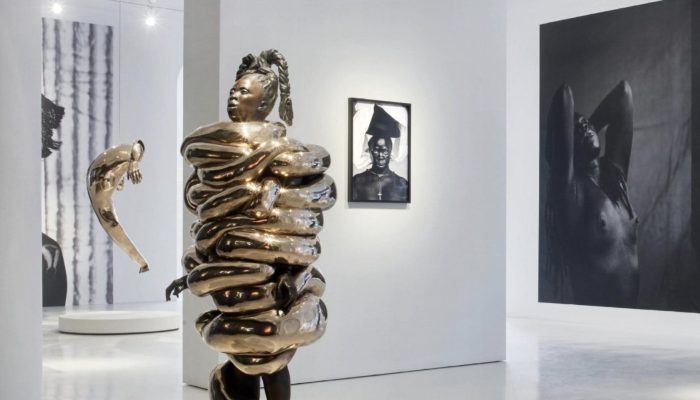
“The uterus is the rite of passage that is common to all of us regardless of race, class, gender. It is a common space, it is like water – water is water, blood is blood, the womb is the womb, birth is birth. You are born from someone, you come from that passage.” – Zanele Muholi
Zanele Muholi’s artistic description is simply, ‘Visual Activist’. Most often, an artist will follow an activist-oriented thread through their development as life confronts them with existential themes of being alive; the more that they create, the more the world reveals itself to them. Muholi, otherwise, is intrinsically an activist. They co-founded the Forum for the Empowerment of Women in 2002, a space that focused on providing safety and resources for Black lesbian women in South Africa. As an active campaigner against the violence and hate crimes targeted at queer people, an urgency for archival and documentational threads of these realities abruptly made itself known to Muholi. Thus, their first project ‘Faces and Phases’ set in motion a life dedicated to visual activism, one in which Muholi has stood centrally as a truth revealer on the Black, LGBTQIA+ experience; the experiences of female bodies, the queer experience, and the subsequent violence – oppression – struggles and claiming of autonomy – voyeuristic gazes – and ultimately, the hopes and dreams.
Muholi stands in the aching truth of many Black artists; that projected responsibility to carry in their art, the politicisation of existing. White, cis-gendered and heterosexual artists find as part of their ‘privilege packet’ the choice to thematically and philosophically gauge whichever subject they like – and from Black, queer artists, the world instead demands some sort of reckoning on the realities of being marginalised. Despite this, Muholi’s nearly two decade visual expression has continually been an invitation for understanding – and as they says to me on the press evening of their self-titled exhibition at Southern Guild, “we will get to a place where you will not project your whiteness onto me, nor I will project my queerness onto you, nor will the other do so to anyone else, from whichever place of difference they come from.” After gazing at the monsters in the face for their whole life, Muholi’s vision for a better future has already come. We just have to push on.